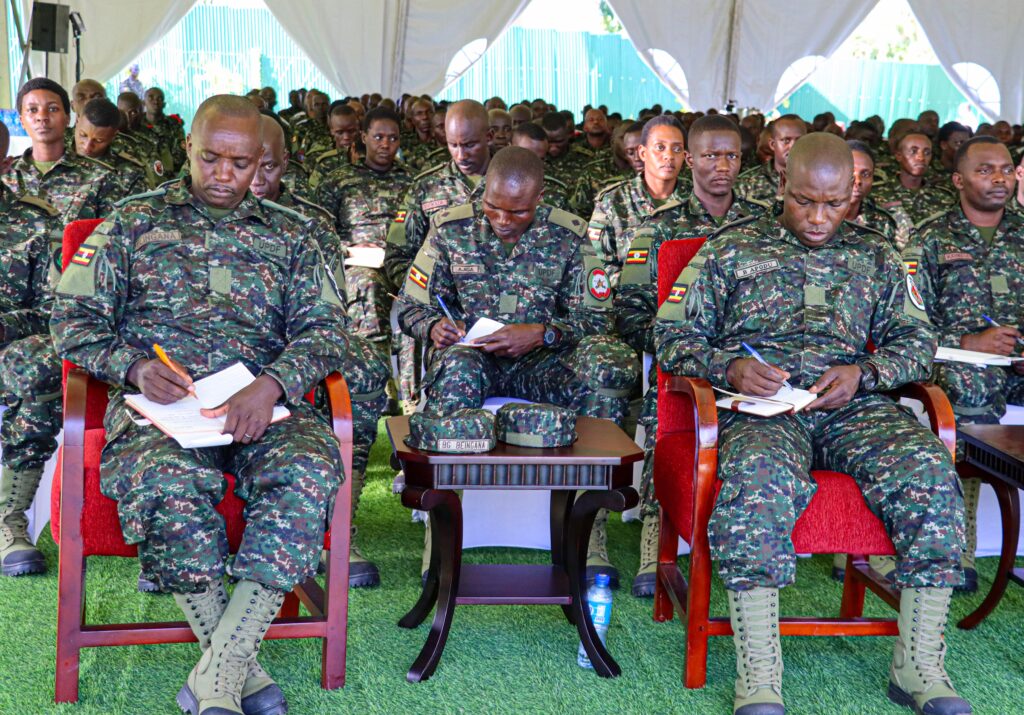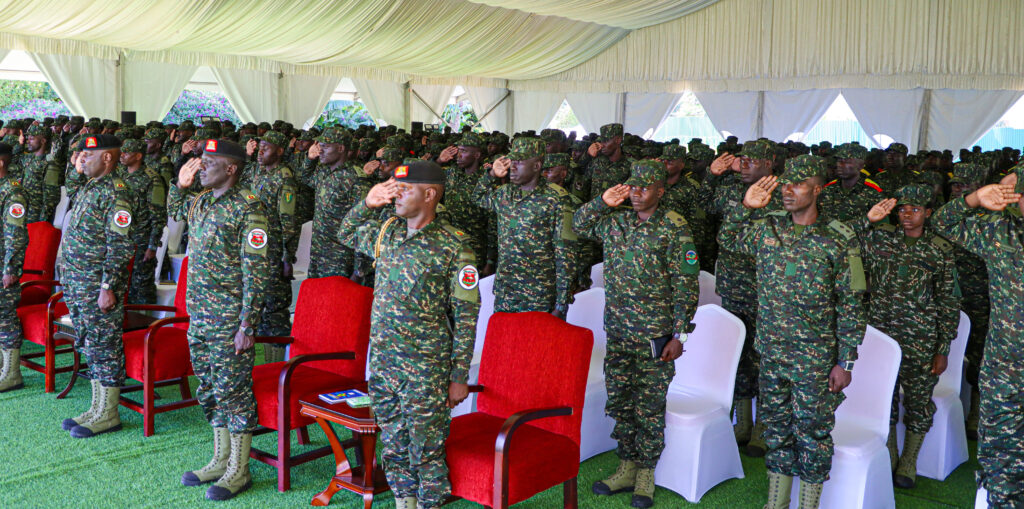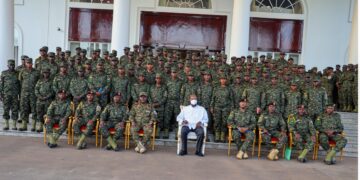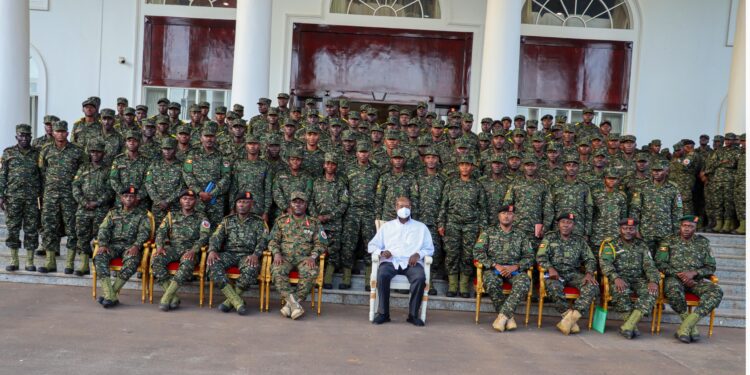Entebbe — President Yoweri Kaguta Museveni has called on officers and students of the Uganda Peoples’ Defence Forces (UPDF) undergoing training at the Armoured Warfare Training School in Karama, Mubende District, to safeguard the country against divisive identity politics and actively engage in Uganda’s socio-economic transformation.
Delivering a lecture of opportunity at State House Entebbe, the President emphasised that identity-based politics weakens national unity and undermines progress. He urged the trainees to focus on the production of goods and services to foster prosperity. “In the last 500 years, Africa has suffered due to weak governance, leading to the slave trade, colonialism, and neo-colonialism. Europeans took control because Africa was divided,” he said.
The President, who is also the Commander-in-Chief of the UPDF, stressed the importance of understanding the army’s revolutionary role in transforming Uganda and Africa. He linked historical colonisation to Africa’s economic challenges and called for a focus on national interests over sectarian identities.

Reflecting on his government’s legacy, Museveni cited the introduction of the National Resistance Movement’s (NRM) three historic missions—prosperity, strategic security, and brotherhood—alongside four ideological principles: Patriotism, Pan-Africanism, Socio-Economic Transformation, and Democracy, as drivers of Uganda’s economic revival.
He cautioned against reliance on foreign aid, advocating instead for local production and entrepreneurship. “Prosperity comes from producing and selling a good or service with ekibaro (economic calculation), not from aid,” he said.
The President highlighted Uganda’s growing surplus in agricultural production, such as sugar and milk, underscoring the need for wider regional markets. “Uganda produces 700,000 metric tons of sugar annually, yet consumes only 300,000. Similarly, we produce 5.4 billion litres of milk but consume only 800 million,” he explained, adding that Uganda recently exported 2,100 metric tons of powdered milk to Algeria.
Museveni warned that without market expansion, overproduction can devalue goods. Using examples like simsim in Orom, he noted the pitfalls of producing similar goods without sufficient market access. He called for regional integration to open broader markets and drive shared prosperity.

He also condemned tribalism, calling it a major obstacle to development. “Tribes matter culturally, but unity matters more. We must avoid the false belief that tribal affiliation leads to prosperity,” he stated.
On sustainable development, Museveni called for a shift from manual to mechanised and skilled labour. “True transformation requires replacing muscle power with mental labour and machinery,” he said, likening development to pregnancy—an inevitable process of change and growth.
Touching on strategic security, Museveni urged for deeper regional cooperation to protect against modern threats. He recalled the failed 1963 attempt to form the East African Federation and criticised the nationalist hesitance of past leaders like Obote and Kenyatta, contrasting them with Nyerere and Karume, who united to form Tanzania.
He emphasised the need to revisit and realise East African unity through “Undugu”—Swahili for brotherhood—highlighting shared cultural and historical bonds across communities such as the Bantu, Nilotic, and Nilo-Hamitic peoples. “These commonalities should unite us against sectarianism,” he said.

Brig Gen Peter Chandia, Commandant of the Armoured Warfare Training School, thanked the President for his inspiring lecture, noting that it aligns closely with the institution’s curriculum and vision. “This session will inspire us to work harder in defending Uganda and Africa while fostering political and economic integration,” he said.
He reported that the school is currently training cohorts in technical and tactical fields, including Combat Engineering (Intake 04/2024–2025), Tank Training (Intake 18/2024–2025), and Armour Platoon Command (Intake 08/2024–2025). The graduation for these groups is scheduled for July 2025.
The event was also attended by Chief Instructors Lt Col Nathan Atwine, Major James Sikusoka, and other senior officers.











